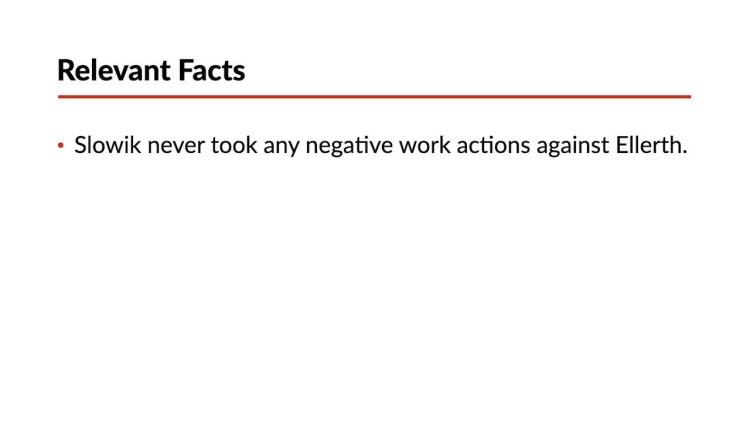Burlington Industries, Inc. v. Ellerth
United States Supreme Court
524 U.S. 742 (1998)
- Written by Nan Futrell, JD
Facts
Kimberly Ellerth (plaintiff) was a salesperson for Burlington Industries, Inc. (Burlington) (defendant) from March 1993 to May 1994. Ellerth worked with her immediate supervisor in Burlington’s Chicago office. Ellerth’s supervisor answered to Ted Slowik, a mid-level manager working out of New York. Throughout Ellerth’s time at Burlington, Slowik frequently made sexist and sexually demeaning comments to Ellerth. Slowik’s conduct included remarks Ellerth interpreted as threats to deny her advancement opportunities within the company. Ellerth applied for and received a promotion, but Slowik continued to make sexist, offensive comments. Ellerth never reported Slowik’s behavior. Ellerth subsequently quit her job, citing reasons unrelated to Slowik’s alleged harassment, but weeks later she sent Burlington a letter identifying Slowik’s offensive conduct as the reason she left. Ellerth sued Burlington under Title VII of the Civil Rights Act of 1964 (Title VII), 42 U.S.C. § 2000e et seq., alleging the company was vicariously liable for Slowik’s unlawful sexual harassment. The district court granted summary judgment to Burlington, concluding that although Slowik’s conduct created a hostile work environment, Burlington was not negligent. The court of appeals reversed, and Burlington petitioned for review by the United States Supreme Court.
Rule of Law
Issue
Holding and Reasoning (Kennedy, J.)
What to do next…
Here's why 906,000 law students have relied on our case briefs:
- Written by law professors and practitioners, not other law students. 47,100 briefs, keyed to 995 casebooks. Top-notch customer support.
- The right amount of information, includes the facts, issues, rule of law, holding and reasoning, and any concurrences and dissents.
- Access in your classes, works on your mobile and tablet. Massive library of related video lessons and high quality multiple-choice questions.
- Easy to use, uniform format for every case brief. Written in plain English, not in legalese. Our briefs summarize and simplify; they don’t just repeat the court’s language.







